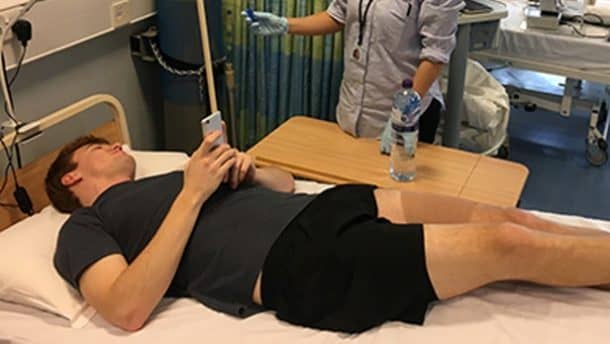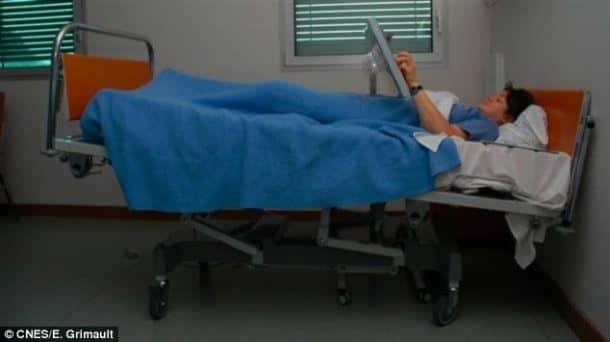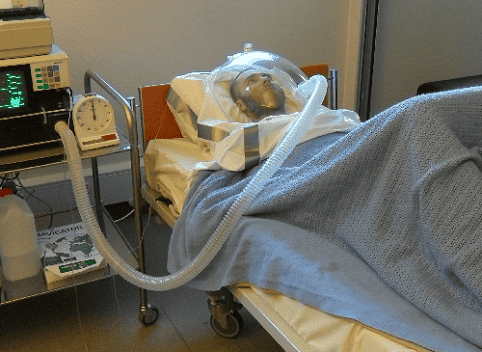A group of ten men at the University of Nottingham have taken to their bed for three days. It is not because they wanted to, but who wouldn’t that? Their purpose for lying down is science. They are termed as Pillownauts and the study will provide medical data to study the effects of weightlessness on astronauts’ health on prolonged space missions. It might one day help avoid the risk of developing Type-2 diabetes due to lack of gravity.
Back in the day, the big concerns related to zero gravity were if a person would be able to breathe and function properly. But, as we are learning more and more about the effects of weightlessness on the human body, it is coming to light that it is worse than previously imagined.

Weightlessness causes bones to lose calcium and the muscles to lose mass as they atrophy. The spines are stretched, which result in back problems. Nasal congestion occurs as fluids rise into the head. This results in a loss of taste and loss of vision as eyeballs are pressed out of shape. Even the autoimmune system is affected along with certain basic cellular functions.
another pressing concern is that the returning astronauts are at risk of developing Type-2 diabetes as they show symptoms of pre-diabetes. This is because the human body develops a resistance to insulin under zero gravity and the muscles and liver absorb less glucose to regulate blood sugar levels.

The Nottingham experiment with Pillownauts uses the tried method of simulating the effects of zero gravity by having the Pillownauts lie flat on the beds with their heads angled slightly down to allow fluids to flow into the head. The ten volunteers will be tucked in for three days at the Queen’s Medical Centre in Nottingham and will be subjected to baseline tests to determine weight, muscle mass, liver and pancreatic function as well as undergoing MRI scans and muscle biopsies.
“Over the period of bed rest, we will use the gold standard method to measure insulin resistance in our 10 participants”, says Natalie Shur, PhD researcher on the project. “This is called an ‘insulin clamp’ and it shows us exactly how much glucose is being taken up by the muscles. We also use stable isotope tracers, administered both orally and intravenously, to show how glucose uptake by muscles changes over time as the bed rest progresses. We expect to find an accelerated onset of insulin resistance in the first three days of bed rest and we hope to answer significant questions about the rate and magnitude of that resistance and associated muscle wasting.”
The team hopes to find out how quickly the body develops insulin resistance and wants to develop new exercise and diet regimes that will combat the effects of weightlessness in pre-diabetes. They hope to do it in the first week in space when the body is still adjusting to the new environment.

“Non-weight-bearing has a major negative impact on health, including reduced muscle mass and sensitivity to nutrition,” says study co-leader Paul Greenhaff. “Pre-diabetes is a very marked negative side effect and it is this aspect that we want to investigate as part of the wider ESA studies. This research has important implications for space flight, but will also provide important insight into the negative effects of inactivity on metabolic health in the general population. Indeed, many of the effects currently attributable to ageing across our life course are most likely caused by decreasing physical activity levels that accompany ageing.”
Let’s hope the experiment is a success so we can have longer manned flights without putting the astronauts n any extra risk than they already are.


